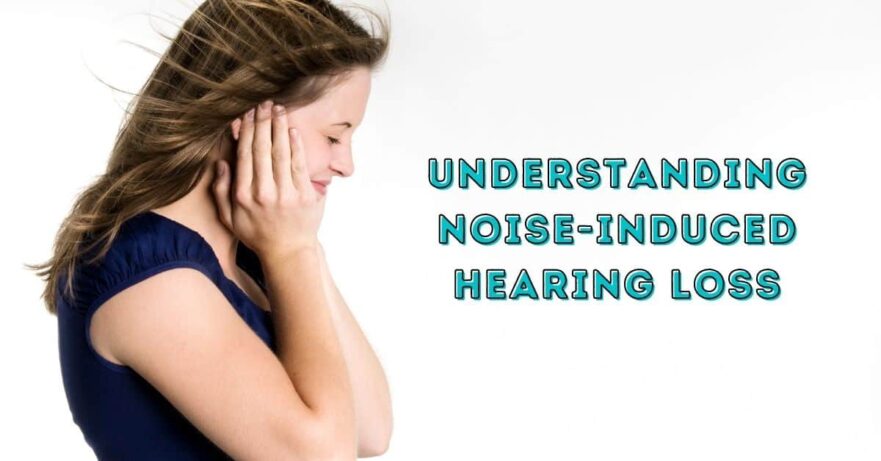At some point you’ve probably been in a loud situation where you’ve had to wear ear plugs or other hearing protection – but do you know how loud sounds can damage our hearing or why it is so important to protect our ears?
Over 45 million Americans live with some form of hearing loss, and in today’s noisy world much of that hearing damage is noise-induced. Noise-induced hearing loss is permanent, but it is also preventable. Let’s take a look at how noise-induced hearing loss works and why it is important to take measures to protect your hearing around dangerous sound levels.
Permanent Hearing Loss
Your hearing is dependent on thousands of tiny hair cells located in your inner ear. These cells are a biologic marvel. They are small enough to be sensitive to minute changes in air pressure caused by sound waves. Soundwaves vibrate these hair cells which, in turn, convey sound signals to the brain where a sound’s meaning is processed.
The delicate nature of these sensory cells is how they function, but it also makes them susceptible to damage. Extreme noise can stress a hair cell past its limit, damaging or killing the cell. Unlike most cells in our body, hair cells cannot regrow or repair themselves, so when a hair cell is damaged it will be irreplaceable out-of-commission for the rest of your life.
Noise-related hearing loss progresses as we age and more and more hair cells are destroyed. While noise-related hearing loss cannot be repaired, using hearing protection can prevent further hearing loss from occurring.
Dangerous Noise
The hair cells in our ears have limits on the level of noise they can be exposed to before they succumb to damage. Usually, noise volume is measured in decibels (dB). In general, sound levels of 70 dB (about the volume of a standard washing machine) and lower are not hazardous to our hearing. Sounds louder than 75 dB have the potential to damage our hearing permanently, depending on how long we are exposed to the noise. The louder the noise, the quicker it can permanently damage our ability to hear.
It is important to recognize dangerous noise levels when you are around them. Sound levels at 85 dB, about the sound level of a factory floor, will damage hearing after 8 hours of exposure. At 105 dB, the volume of a live rock concert, hearing loss can occur in under 10 minutes. Very loud sounds like gunshots, fireworks and jet engines register at around 120 dB and cause immediate hearing damage if your ears are unprotected. Sound above 120 dB will also cause physical pain in the ears in addition to hearing damage.
Protect Your Hearing
A single exposure to loud noise may not seem like a big deal, but each time we expose our hearing to damage, we contribute to our lifelong noise-induced hearing loss. Research estimates that by the time significant hearing loss can be detected via a hearing exam around one third of our inner ear hair cells have been disabled.
Preventative care is the best path to long-term hearing health. The first step is making yourself aware of the volume levels you surround yourself with. Installing a decibel meter on your phone is a great way to monitor noise pollution in your immediate environment. You’ll also want to check the volume levels on your stereo, radio, television and computer – especially if you use headphones or earbuds for listening to media.
If you work around dangerous noise levels, you have the right to hearing protection on the job. People with passions and pastimes that put them in the path of dangerously loud sound – such as musicians and hunters- should invest in fitted, quality hearing protection.
Hearing protection will dampen sound levels and is the first line of defense against dangerously loud noise. Your best defense against noise-induced hearing loss is avoiding and minimizing your noise exposure.
Noise-Induced Hearing Loss
Noise-induced hearing loss is incredibly common, even though most of it is entirely preventable. While there is no cure for noise-induced hearing loss, it can be treated effectively with hearing aids. If you have noticed changes or challenges in how you hear, it is time to schedule a hearing exam with us! We’re here to help. Contact us today.

